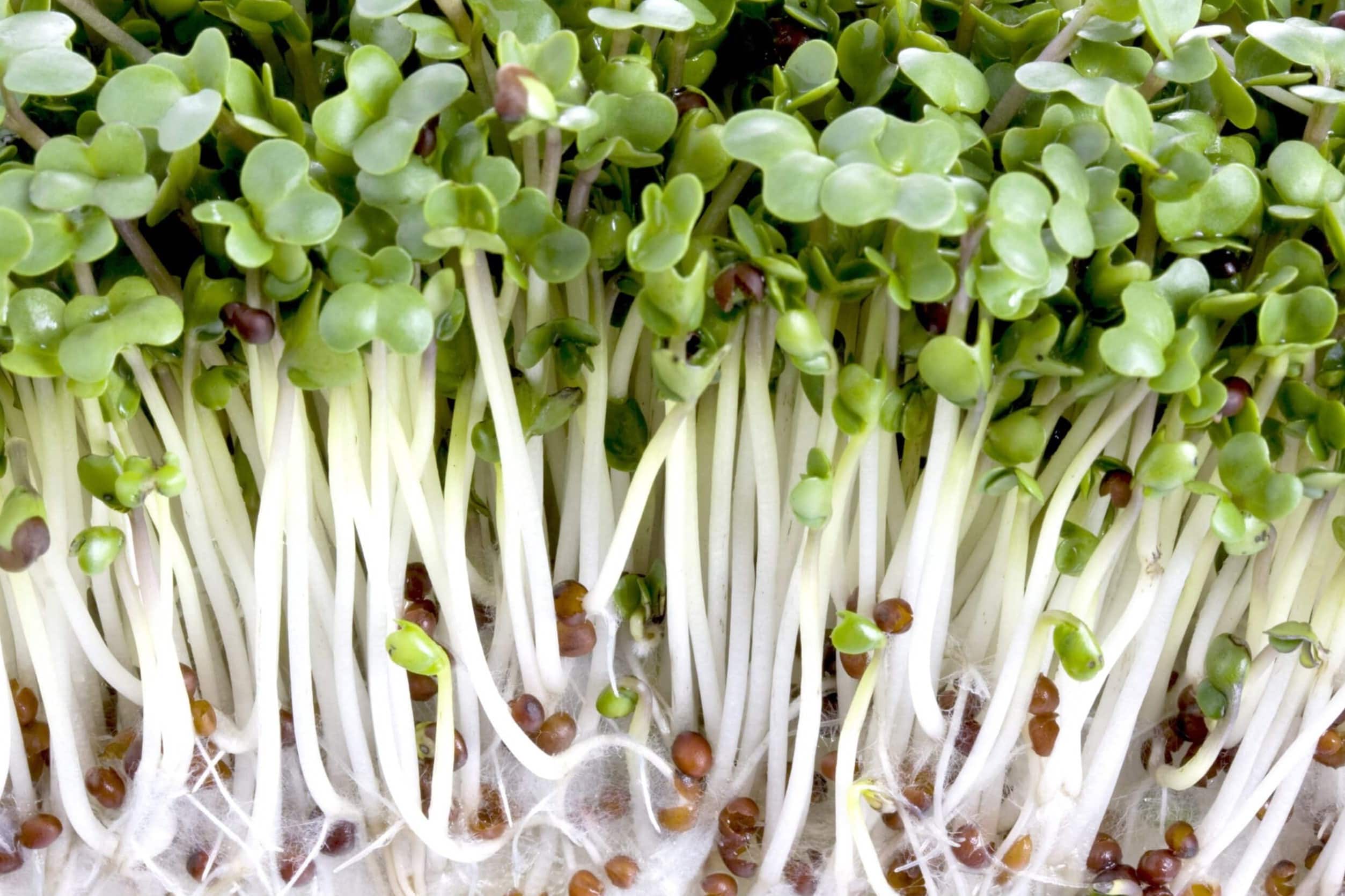
Sprouts are tiny powerhouses of nutrition that pack a punch. But what makes them so special? These little greens are not just for salads; they offer a range of health benefits that can boost your diet. From improving digestion to enhancing your immune system, sprouts are versatile and easy to grow at home. Whether you're a seasoned gardener or a newbie, sprouting seeds can be a fun and rewarding experience. Plus, they add a fresh, crunchy texture to your meals. Ready to learn more about these nutrient-dense wonders? Let's dive into 20 fascinating facts about sprouts that will leave you amazed!
Key Takeaways:
- Sprouts are nutrient-packed, low-calorie, and high-fiber young plants that offer numerous health benefits, including boosting immunity and regulating blood sugar levels. They are easy to grow at home and can be used in salads and smoothies for added nutrition.
- With a history dating back over 5,000 years, sprouts have been considered as potential space food by NASA due to their high nutrient content and eco-friendly growth requirements. They are versatile in culinary uses, adding crunch and nutrition to salads and smoothies.
What Are Sprouts?
Sprouts are young plants that have just started to grow from seeds. They are packed with nutrients and have been a part of human diets for centuries. Let's dive into some interesting facts about these tiny powerhouses.
-
Nutrient-Rich: Sprouts are incredibly nutrient-dense. They contain high levels of vitamins A, B, C, and E, as well as essential minerals like calcium, iron, and magnesium.
-
Low in Calories: Despite being nutrient-rich, sprouts are very low in calories. This makes them an excellent addition to any diet, especially for those looking to lose weight.
-
High in Fiber: Sprouts are a great source of dietary fiber, which aids in digestion and helps maintain a healthy gut.
Types of Sprouts
There are various types of sprouts, each with its unique flavor and nutritional profile. Here are some of the most popular ones.
-
Alfalfa Sprouts: These are probably the most common type of sprouts. They have a mild flavor and are often used in salads and sandwiches.
-
Bean Sprouts: Commonly used in Asian cuisine, bean sprouts are crunchy and have a slightly nutty flavor.
-
Broccoli Sprouts: These sprouts are known for their high levels of sulforaphane, a compound that has been shown to have cancer-fighting properties.
Health Benefits of Sprouts
Sprouts offer numerous health benefits, making them a valuable addition to any diet.
-
Boosts Immunity: The high levels of vitamins and antioxidants in sprouts help strengthen the immune system.
-
Improves Digestion: The fiber in sprouts aids in digestion and helps prevent constipation.
-
Regulates Blood Sugar: Sprouts have a low glycemic index, which helps regulate blood sugar levels and can be beneficial for people with diabetes.
How to Grow Sprouts at Home
Growing sprouts at home is easy and requires minimal equipment. Here are some steps to get you started.
-
Choose Your Seeds: Select high-quality seeds that are specifically meant for sprouting.
-
Soak the Seeds: Soak the seeds in water for several hours or overnight to kickstart the germination process.
-
Rinse and Drain: Rinse the seeds thoroughly and drain the water. Repeat this process twice a day until the seeds sprout.
Safety Tips for Consuming Sprouts
While sprouts are generally safe to eat, there are some precautions you should take to avoid foodborne illnesses.
-
Buy Fresh: Always buy fresh sprouts from a reputable source to ensure they are free from contaminants.
-
Store Properly: Keep sprouts refrigerated and consume them within a few days to maintain their freshness and nutritional value.
-
Cook When Necessary: If you have a weakened immune system, consider cooking sprouts to kill any potential bacteria.
Fun Facts About Sprouts
Sprouts have some fascinating aspects that you might not know about. Here are a few fun facts.
-
Ancient History: Sprouts have been consumed for over 5,000 years, with records showing their use in ancient China and India.
-
Space Food: NASA has considered sprouts as a potential food source for astronauts due to their high nutrient content and ease of growth.
-
Eco-Friendly: Growing sprouts requires very little water and space, making them an environmentally friendly food source.
Culinary Uses of Sprouts
Sprouts can be used in a variety of dishes, adding both flavor and nutrition.
-
Salads: Sprouts are a popular addition to salads, providing a crunchy texture and fresh taste.
-
Smoothies: Adding sprouts to smoothies is a great way to boost their nutritional content without altering the flavor significantly.
Sprouts: Tiny Powerhouses of Nutrition
Sprouts pack a punch when it comes to nutrition. These little greens are loaded with vitamins, minerals, and antioxidants. They can boost your immune system, improve digestion, and even help with weight loss. Adding them to your diet is easy. Toss them in salads, sandwiches, or smoothies for a crunchy, nutritious kick.
Growing your own sprouts at home is simple and cost-effective. All you need are some seeds, water, and a bit of patience. In just a few days, you'll have fresh sprouts ready to eat. Plus, it's a fun project that can get the whole family involved.
So, next time you're at the grocery store, grab a pack of sprouts or some seeds to grow your own. Your body will thank you for the extra nutrients and health benefits.
Frequently Asked Questions
Was this page helpful?
Our commitment to delivering trustworthy and engaging content is at the heart of what we do. Each fact on our site is contributed by real users like you, bringing a wealth of diverse insights and information. To ensure the highest standards of accuracy and reliability, our dedicated editors meticulously review each submission. This process guarantees that the facts we share are not only fascinating but also credible. Trust in our commitment to quality and authenticity as you explore and learn with us.


